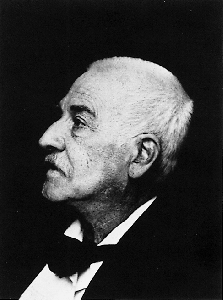A Quote by Margaret Mead
I have tried to answer the question which sent me to Samoa: Are the disturbances which vex our adolescents due to the nature of adolescence itself or to the civilization? Under different conditions does adolescence present a different picture?
Related Quotes
To each eye, perhaps, the outlines of a great civilization present a different picture. In the wide ocean upon which we venture, the possible ways and directions are many; and the same studies which have served for my work might easily, in other hands, not only receive a wholly different treatment and application, but lead to essentially different conclusions.
Confusion conditions activity, which conditions consciousness, which conditions embodied personality, which conditions sensory experiences, which conditions impact, which conditions mood, which conditions craving, which conditions clinging, which conditions becoming, which conditions birth, which conditions aging and death.
The purpose of adolescence is to revise the past, not to obliterate it. . . . Adolescence entails the deployment of family passions to the passions and ideals that bind individuals to new family units, to their communities, to the species, to nature, to the cosmos. Therefore, given half a chance, the revolution at issue in adolescence becomes a revolution of transformation, not of annihilation.
The troubles of the 20th century are not unlike those of adolescence -- rapid growth beyond the ability of organizations to manage, uncontrollable emotion, and a desperate search for identity. Out of adolescence, however, comes maturity in which physical growth with all its attendant difficulties comes to an end, but in which growth continues in knowledge, in spirit, in community, and in love; it is to this that we look forward as a human race. This goal, once seen with our eyes, will draw our faltering feet toward it.
I did not write it [Coming of Age in Samoa] as a popular book, but only with the hope that it would be intelligible to those who might make the best use of its theme, that adolescence need not be the time of stress and strain which Western society made it; that growing up could be freer and easier and less complicated; and also that there were prices to pay for the very lack of complication I found in Samoa - less intensity, less individuality, less involvement with life.
[My father] impressed upon me from the first, that the manner in which the world came into existence was a subject on which nothing was known: that the question, "Who made me?" cannot be answered, because we have no experience or authentic information from which to answer it; and that any answer only throws the difficulty a step further back, since the question immediately presents itself, "Who made God?
Since nothing can exist that does not fulfil the conditions which render its existence possible, the different parts each being must be co-ordinated in such a way as to render possible the existence of the being as a whole, not only in itself, but also in its relations with other beings, and the analysis of these conditions often leads to general laws which are as certain as those which are derived from calculation or from experiment.
Adolescence has been recognised as a stage of human development since medieval times--long, long before the industrial revolution--and, as it is now, has long been seen as a phase which centers on the fusion of sexual and social maturity. Indeed, adolescence as a concept has as long a history as that of puberty, which is sometimes considered more concrete, and hence much easier to name and to recognize.
Adolescence is a relatively recent thing in human history -- a period of years between the constraints of childhood and the responsibilities of adulthood. This irresponsible period of adolescence is artificially extended by long years of education, much of it wasted on frivolities. Tenure extends adolescence even further for teachers and professors.
In contrast to our own social environment which brings out different aspects of human nature and often demonstrated that behavior which occurs almost invariably in individuals within our society is nevertheless due not to original nature but to social environment; and a homogeneous and simple development of the individual may be studied.
Suicide may also be regarded as an experiment - a question which man puts to Nature, trying to force her to answer. The question is this: What change will death produce in a man's existence and in his insight into the nature of things? It is a clumsy experiment to make; for it involves the destruction of the very consciousness which puts the question and awaits the answer.
It is not however, adulthood itself, but parenthood that forms the glass shroud of memory. For there is an interesting quirk in the memory of women. At 30, women see their adolescence quite clearly. At 30 a woman's adolescence remains a facet fitting into her current self.... At 40, however, memories of adolescence are blurred. Women of this age look much more to their earlier childhood for memories of themselves and of their mothers. This links up to her typical parenting phase.


































